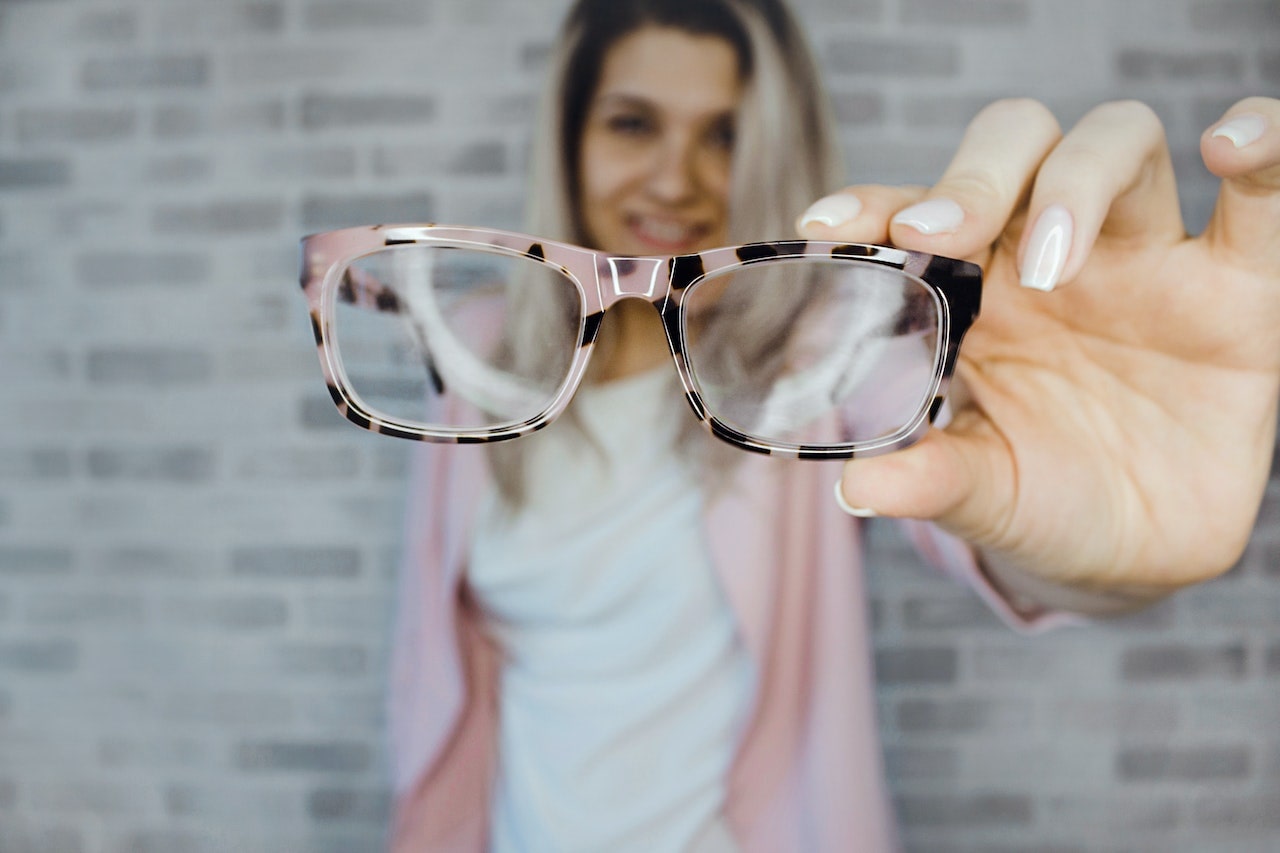Updated on September 24, 2024
Polycarbonate Lenses


Vision Center is funded by our readers. We may earn commissions if you purchase something via one of our links.
What are Polycarbonate Lenses?
Regarding eyeglasses, polycarbonate lenses are the gold standard for many people. This type of lens is lightweight yet strong and resilient. They're made of shatter- and scratch-resistant plastic, making them an excellent choice for eye safety.

Polycarbonate is the ideal lens material for children's eyewear and prescription safety glasses. Impact resistance sets them apart from other eyeglass lenses. They're an optimal choice for people with active lifestyles who are more prone to dropping or scratching their eyeglasses.
Benefits of polycarbonate lenses include:
- Lighter and thinner than glass or standard plastic lenses
- More comfortable to wear
- Built-in UV light protection
- 10 times stronger than glass or regular plastic
Where to Buy Glasses + Contacts
Best Overall: Warby Parker
Fastest Delivery: EyeBuyDirect
Also Great: Liingo
Best Place to Buy Contacts: Discount Contacts
What are Polycarbonate Lenses Made From?
Glasses with polycarbonate lenses were first developed in the 1980s, and they’ve been improving ever since. Also known as poly, this flexible plastic was designed for use in astronaut gear. It's highly impact-resistant and famous for standing up to forces that would shatter other materials.
Poly lenses are the standard for:
- Safety glasses
- Children’s eyewear
- Sports goggles
Polycarbonate is also used in headlights, helmets, and bulletproof glass.
Advantages and Disadvantages of Polycarbonate Lenses
All eyeglass wearers should weigh the pros and cons of polycarbonate lenses before making a purchase. Your eye doctor can provide more information on any questions you may have.
Advantages of Polycarbonate Lenses
Here are some of the standouts of polycarbonate lenses:
Impact Resistance
Polycarbonate is one of the most impact-resistant types of eyeglass lenses. You’re unlikely to find more durable eyewear lenses. This promotes eye health by providing an extra layer of safety
UV Protection
Polycarbonate lenses boast built-in protection from UV light (ultraviolet light). There's no need to add a protective coating. These lenses guard your eyes against UVA and UVB sun rays.
Thinner Lenses
Polycarbonate lenses are designed for strength, yet they’re thin and lightweight. These lenses are up to 30% thinner than regular plastic or glass lenses.
Polycarbonate is an excellent choice for people with a strong prescription. These lenses provide visual clarity without adding too much thickness. Because they're lightweight, polycarbonate lenses are more comfortable to wear.
Versatility
- Anti-glare coating
- Scratch-resistant coating
- Blue-light-filtering coating
Polycarbonate is also compatible with progressive lenses.
Disadvantages of Polycarbonate Lenses
There are also some disadvantages of polycarbonate lenses:
The Cost
Polycarbonate lenses can cost up to double the price of regular eyeglasses.
While quality eye care is important, the price can be a critical factor in your decision-making process. Having a conversation with your optician about your eyewear needs and shopping around for the best price is wise.
Low Scratch Resistance
Although polycarbonate is highly impact-resistant, it scratches easily. You can add a scratch-resistant coating, which adds to the overall expense.
Not Suitable for All Prescriptions
Polycarbonate lenses are a popular choice, but they’re not for everyone. People with eyeglass prescriptions stronger than +/- 4.0 may need high-index lenses.
Lower Abbe value
Abbe value measures the dispersion of light for different eyeglass lens materials.
Polycarbonate rates are lower, meaning they have the potential to cause slight chromatic aberrations (visual distortions) in your peripheral vision. However, many people do not notice this.
Polycarbonate vs. Other Types of Lenses
Polycarbonate vs. Trivex
Trivex lenses have many of the same qualities as polycarbonate lenses and offer crisp, clear optical clarity. Both materials offer excellent impact resistance and UV protection. However, there are some differences:
- Polycarbonate is about 10% thinner than Trivex
- Trivex is about 10% lighter than poly
- Trivex offers superior optical clarity due to polycarbonate’s lens distortions
Polycarbonate vs. High-index
High-index lenses are denser than polycarbonate, which makes them thinner. Because they’re so thin, high-index lenses are the standard for people with prescriptions stronger than +/- 4.0.
A polycarbonate lens is 10 times more impact-resistant than a high-index one. This makes poly lenses a better option for athletes and children.
Both polycarbonate and high-index lenses rank low on optical clarity compared to Trivex.
Polycarbonate vs. Plastic
Plastic lenses have a higher Abbe value than polycarbonate. Therefore plastic offers better optical clarity. Additionally, plastic lenses are much less expensive than the other options.
Disadvantages of plastic lenses include:
- No UV protection
- Less durable than polycarbonate
- Heavier material that’s more cumbersome to wear
How Much Do Polycarbonate Lenses Cost?
The cost and quality of polycarbonate lenses will vary depending on your prescription (stronger prescriptions may cost more) and the seller, so it’s worth shopping around. With your prescription, you have the right to shop wherever you prefer — from an optician, in stores, or online.
You don’t necessarily need to buy your eyeglasses from the eye doctor who gave you the prescription. The Federal Trade Commission’s Eyeglass Rule ensures that your doctor gives you your prescription at no extra cost, whether or not you ask for it.
In this article
6 sources cited
Updated on September 24, 2024
Updated on September 24, 2024
About Our Contributors
Lauren, with a bachelor's degree in biopsychology from The College of New Jersey and public health coursework from Princeton University, is an experienced medical writer passionate about eye health. Her writing is characterized by clarity and engagement, aiming to make complex medical topics accessible to all. When not writing, Lauren dedicates her time to running a small farm with her husband and their four dogs.
Dr. Melody Huang is an optometrist and freelance health writer with a passion for educating people about eye health. With her unique blend of clinical expertise and writing skills, Dr. Huang seeks to guide individuals towards healthier and happier lives. Her interests extend to Eastern medicine and integrative healthcare approaches. Outside of work, she enjoys exploring new skincare products, experimenting with food recipes, and spending time with her adopted cats.






